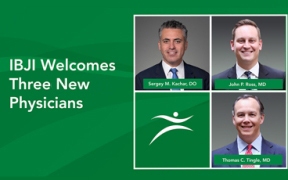Before you start searching the internet for phrases like why does my shoulder hurt and asking Dr. Google for help, it’s essential to understand why your shoulder is susceptible to injury and disease.
Your shoulder is an amazing joint that provides an incredibly wide range of motion. While this range of motion is highly beneficial, it comes at a price: shoulder instability. Since the shoulder is so unstable, the bones, muscles, and tissues of the shoulder are often damaged while they try to support your arm during all of the movement it endures.
Keep reading to learn about shoulder mechanics, the most common shoulder pain causes, and how to get relief when your shoulder hurts.
How the Shoulder Works

Your shoulder is a complex ball and socket joint made up of many bones, muscles, tendons, and ligaments. The three bones comprise the shoulder joint: the humorous, scapula, and clavicle. The joint’s ball portion is situated on top of the humerus bone and sits inside the scapula’s socket.
Supporting the joint are ligaments, which connect the separate bones to each other. Motion is caused by the tendons, which tie the bones and muscles together. A group of tendons holds the ball into the rotator cuff socket. The bursae are the sacks cushion the joint and allow the motion to be fluid and easy.
Why Does My Shoulder Hurt?
The following shoulder injuries and diseases are common causes of shoulder pain.
Injuries
Many types of injuries can cause damage to the shoulder joint. These can be sudden and traumatic injuries or long-term wear and tear. They include:
- Shoulder Separation: Torn ligaments that allow the clavicle to move out of place
- Shoulder Dislocation: Occurs when the shoulder ball is forced out of the socket
- Sternoclavicular Separation: When the sternum and clavicle separate
- Rotator Cuff Tears: The tendons of the rotator cuff become torn
- Tendinitis: Inflammation of the tendons in the shoulder
- Bursitis: Occurs when the bursae become inflamed
- Shoulder Impingement Syndrome: Inflammation of the tendons causing the tendons to become trapped in the joint
- SLAP Tears: Shoulder tears caused by trauma or repetitive motion (common in athletes)
- Breaks or Fractures: Any of the bones involved with the usually pain-free movement of the shoulder can be broken or cracked
Diseases
There are a few diseases that can cause shoulder pain, the most common of which is arthritis. Shoulder arthritis can be caused by the regular use of the joint over time. There are two main types of arthritis usually found in the shoulder: arthritis of the shoulder joint and arthritis of the AC joint.
The cartilage in the socket being lost through normal wear and tear, surgery, inflammation, infection, or injury are primary causes of arthritis of the shoulder. AC joint arthritis occurs when a small piece of cartilage near the clavicle is reduced in size or disappears via everyday use or injury.
Another ailment commonly associated with disease but also associated with shoulder surgery is frozen shoulder syndrome. Frozen shoulder occurs when the joint experiences restricted movement and sometimes severe pain. The lack of motion is caused by unusual tissue growth restricting the space available for motion and displacing the lubricating fluid usually seen surrounding the shoulder joint.
Why Does My Shoulder Hurt, and How Can I Get Relief?
It is always best to see a physician to diagnose the specific cause of your shoulder pain and come up with a shoulder care plan that works best for you. Your physician may give you exercises or other shoulder pain treatments you can perform at home and may also prescribe surgery or medication to alleviate the pain.
*This content is for information only and is not intended to replace the diagnosis, treatment, or medical advice from your treating healthcare professionals. The content does not provide medical advice, does not constitute the practice of medicine or other healthcare professional services, and does not create a doctor-patient relationship. You should not rely on this information as a substitute, nor does it replace professional medical advice, diagnosis, or treatment. If you have concerns or questions, seek the advice of your healthcare professionals. If you think you may have a medical emergency, call your doctor or 911 immediately. Do not rely on electronic communications or communicate through this website for immediate, urgent medical needs. This website is not designed to facilitate medical emergencies. The use of the information is at the reader’s own risk. The links are provided for information and convenience only. We cannot accept responsibility for the sites linked or the information found here. A link does not imply an endorsement of a site.




